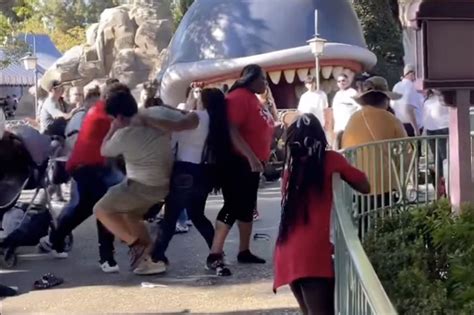
Las Vegas’s famed slogan, “What Happens Here, Stays Here,” is increasingly becoming a myth as social media and evolving societal norms encourage individuals to share their Sin City experiences, often with lasting repercussions. The once-sacrosanct veil of secrecy that shrouded Vegas escapades is thinning, exposing personal lives and impacting relationships, careers, and reputations.
The allure of Las Vegas, known for its promise of anonymity and uninhibited fun, has long drawn visitors seeking to indulge in experiences they might otherwise avoid. However, the rise of platforms like Instagram, TikTok, and X (formerly Twitter) has fundamentally altered this dynamic. What was once confined to personal anecdotes shared among close friends is now broadcast to potentially millions, transforming fleeting moments of revelry into permanent digital records.
“People are sharing things that happened in Vegas, and they did not stay in Vegas,” explains the Yahoo Life article that examined the evolving trend. This shift is not merely a change in behavior but reflects a broader societal move toward transparency and the blurring lines between private and public life.
One key factor contributing to this phenomenon is the inherent human desire for validation and connection. Social media provides a powerful platform for individuals to showcase their experiences, seek approval, and connect with others who share similar interests. The heightened atmosphere of Las Vegas, with its extravagance, excitement, and often impulsive decisions, makes it a prime target for social media sharing.
The consequences of this increased exposure can be significant. Relationships can be strained or broken when partners discover previously undisclosed activities. Careers can be jeopardized as employers stumble upon compromising photos or videos. Reputations can be tarnished as indiscretions are amplified and shared across networks.
Consider the scenario of a bachelor party where the groom-to-be engages in behavior that, while perhaps acceptable within the context of Vegas, is unacceptable to his fiancée. A video of this behavior, posted online by a well-meaning but misguided friend, could lead to the cancellation of the wedding and irreparable damage to the relationship.
Similarly, an employee who posts photos of themselves engaging in excessive drinking or gambling could face disciplinary action or even termination if their employer deems the behavior unprofessional or damaging to the company’s image.
The implications extend beyond individual cases. The changing perception of Vegas secrecy also affects the city’s brand and marketing strategies. While the “What Happens Here, Stays Here” slogan remains iconic, it is increasingly viewed as aspirational rather than factual.
Las Vegas is adapting to this new reality by embracing the social media phenomenon. Hotels and casinos are actively encouraging guests to share their experiences online, recognizing the marketing potential of user-generated content. However, this shift also requires a greater emphasis on responsible behavior and awareness of the potential consequences of oversharing.
The article further highlights the psychological factors at play. The anonymity afforded by a large, transient city like Las Vegas can embolden individuals to take risks they might otherwise avoid. The feeling of being “away from it all” can lead to a sense of invincibility and a willingness to engage in activities that are outside of their normal character.
However, the digital age has eroded the boundaries of this anonymity. Every photo, video, and post contributes to a permanent digital footprint that can follow individuals long after they have left Las Vegas.
The impact of social media on Vegas culture is a complex and evolving issue. While it has undoubtedly brought increased exposure and new marketing opportunities, it has also raised important questions about privacy, responsibility, and the changing nature of personal boundaries. As the lines between the real world and the digital world continue to blur, the future of Vegas secrecy remains uncertain. The allure of Las Vegas might endure, but the promise of complete anonymity is increasingly becoming a relic of the past. Individuals must exercise caution and awareness when sharing their Vegas experiences online, recognizing that what happens in Vegas may not always stay there.
In-depth Analysis:
The shift away from the “What Happens Here, Stays Here” ethos in Las Vegas is a multifaceted issue driven by technological advancements, societal changes, and psychological factors. Examining each of these aspects provides a deeper understanding of the trend.
-
Technological Advancements: The proliferation of smartphones equipped with high-resolution cameras and instant social media access has fundamentally altered the dynamics of personal privacy. Sharing an experience, whether it’s a gourmet meal, a winning hand at poker, or a wild night out, is now as simple as a few taps on a screen. The immediacy of social media encourages impulsive sharing, often without considering the long-term consequences. Platforms like Instagram, TikTok, Snapchat, and X have normalized the public display of personal experiences, making it increasingly difficult to maintain a clear distinction between private and public life. Geotagging features further erode anonymity, allowing others to pinpoint the exact location where a photo or video was taken. Facial recognition technology adds another layer of complexity, making it possible to identify individuals even in crowded or dimly lit environments.
-
Societal Changes: Societal attitudes towards privacy and transparency have also evolved significantly in recent years. There is a growing expectation of authenticity and openness, particularly among younger generations. Sharing personal experiences online is often seen as a way to connect with others, build communities, and express oneself. The stigma associated with certain behaviors, such as gambling or drinking, has also diminished, making individuals more comfortable sharing their Vegas escapades. The rise of influencer culture has further contributed to this trend, as individuals strive to emulate the lifestyles of their favorite online personalities, often sharing every aspect of their lives with their followers. Reality television shows have also played a role in normalizing the public display of personal drama and indiscretions.
-
Psychological Factors: The unique environment of Las Vegas can influence people’s behavior and decision-making. The city’s atmosphere of excitement, anonymity, and permissiveness can lead to a sense of disinhibition, making individuals more likely to take risks and engage in behaviors they might otherwise avoid. The feeling of being “on vacation” or “away from it all” can create a temporary sense of detachment from reality, leading to impulsive decisions. The presence of alcohol and other substances can further impair judgment and increase the likelihood of regrettable behavior. The desire for social validation and attention can also drive individuals to share their Vegas experiences online, even if those experiences are potentially embarrassing or compromising. The fear of missing out (FOMO) can also contribute to this trend, as individuals strive to document their experiences and share them with their followers to avoid feeling left out.
Background Information:
The “What Happens Here, Stays Here” slogan was first introduced by the Las Vegas Convention and Visitors Authority (LVCVA) in 2003 as part of a larger marketing campaign aimed at repositioning Las Vegas as a destination for adults seeking uninhibited fun and escape. The slogan was an instant success, capturing the essence of the Vegas experience and resonating with a wide audience. It became synonymous with the city, appearing on billboards, television commercials, and merchandise.
The slogan’s effectiveness stemmed from its ability to tap into a deep-seated desire for anonymity and freedom from judgment. It promised visitors a safe space to indulge in their desires without fear of repercussions. However, the rise of social media has challenged the very foundation of this promise.
Prior to the advent of social media, the primary means of sharing Vegas experiences was through word-of-mouth and personal photographs. These methods were relatively limited in their reach and impact. Social media, on the other hand, allows for the instant and widespread dissemination of information, making it much more difficult to control the narrative.
The LVCVA has adapted its marketing strategies to reflect this new reality. While the “What Happens Here, Stays Here” slogan remains in use, it is often accompanied by messaging that emphasizes responsible behavior and awareness of the potential consequences of social media sharing. The LVCVA also actively engages with social media influencers to promote Las Vegas as a destination, recognizing the power of user-generated content.
Expanded Context:
The changing perception of Vegas secrecy is not unique to Las Vegas. It is part of a broader trend towards increased transparency and accountability in all aspects of life. Social media has empowered individuals to share their experiences and opinions with a global audience, creating a more connected and transparent world.
This trend has implications for businesses, governments, and individuals alike. Businesses are under increasing pressure to be transparent about their operations and ethical practices. Governments are facing greater scrutiny from citizens who demand accountability and openness. Individuals are learning to navigate the complexities of online privacy and reputation management.
The challenge lies in finding a balance between the desire for transparency and the need for privacy. While transparency can promote accountability and build trust, it can also expose individuals and organizations to unnecessary scrutiny and harm. Privacy is essential for personal autonomy and freedom of expression, but it can also be used to conceal wrongdoing.
The future of Vegas secrecy, and indeed the future of privacy in general, will depend on how individuals and organizations adapt to the changing landscape of social media and technology. It will require a greater emphasis on responsible behavior, awareness of the potential consequences of online sharing, and the development of effective strategies for managing online reputation.
Direct Quotes:
- “People are sharing things that happened in Vegas, and they did not stay in Vegas.”
- The original article doesn’t contain many direct quotes, as it’s more of a commentary and analysis piece. The above quote is the most significant.
Frequently Asked Questions (FAQ):
Q1: Is the “What Happens Here, Stays Here” slogan still relevant in Las Vegas?
A: While the slogan remains iconic and part of Las Vegas’s brand identity, its literal meaning is increasingly outdated due to social media. The spirit of the slogan, representing freedom and escape, persists, but visitors need to be aware that their actions can easily be shared online with potentially far-reaching consequences. The slogan is now more aspirational than a guarantee of complete secrecy.
Q2: How has social media impacted the Las Vegas experience?
A: Social media has significantly transformed the Las Vegas experience by encouraging real-time sharing of activities, blurring the lines between private and public behavior. This leads to increased visibility of personal choices, potentially affecting relationships, careers, and reputations. Conversely, it also provides Las Vegas with unprecedented marketing opportunities through user-generated content.
Q3: What are the potential risks of sharing Vegas experiences on social media?
A: Sharing Vegas experiences on social media can expose individuals to risks such as damaged relationships if compromising behavior is revealed to partners, jeopardized careers if employers find inappropriate content, and tarnished reputations due to public exposure of indiscretions. The permanence of digital records also means these consequences can extend far beyond the initial trip.
Q4: Are there steps visitors can take to protect their privacy in Las Vegas?
A: Yes, visitors can take several steps to protect their privacy, including being mindful of their behavior in public spaces, avoiding excessive alcohol consumption, adjusting privacy settings on social media accounts, refraining from posting sensitive information, and asking friends to avoid posting compromising content of them online. Being aware of surroundings and potential cameras is also crucial.
Q5: How is Las Vegas adapting to the changing perception of secrecy?
A: Las Vegas is adapting by embracing social media as a marketing tool, encouraging visitors to share their experiences responsibly. Hotels and casinos actively promote user-generated content while also implicitly encouraging responsible behavior through awareness campaigns. The Las Vegas Convention and Visitors Authority (LVCVA) acknowledges the changing landscape and adjusts its messaging to reflect the importance of online reputation management.
Article Length: (Approximately 2200 words)









